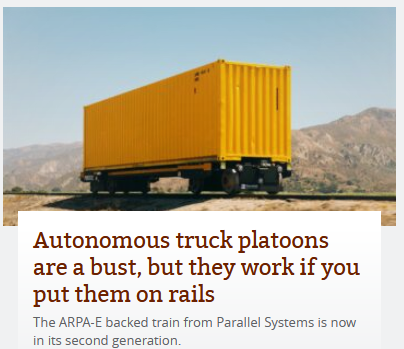view the rest of the comments
Fuck Cars
A place to discuss problems of car centric infrastructure or how it hurts us all. Let's explore the bad world of Cars!
Rules
1. Be Civil
You may not agree on ideas, but please do not be needlessly rude or insulting to other people in this community.
2. No hate speech
Don't discriminate or disparage people on the basis of sex, gender, race, ethnicity, nationality, religion, or sexuality.
3. Don't harass people
Don't follow people you disagree with into multiple threads or into PMs to insult, disparage, or otherwise attack them. And certainly don't doxx any non-public figures.
4. Stay on topic
This community is about cars, their externalities in society, car-dependency, and solutions to these.
5. No reposts
Do not repost content that has already been posted in this community.
Moderator discretion will be used to judge reports with regard to the above rules.
Posting Guidelines
In the absence of a flair system on lemmy yet, let’s try to make it easier to scan through posts by type in here by using tags:
- [meta] for discussions/suggestions about this community itself
- [article] for news articles
- [blog] for any blog-style content
- [video] for video resources
- [academic] for academic studies and sources
- [discussion] for text post questions, rants, and/or discussions
- [meme] for memes
- [image] for any non-meme images
- [misc] for anything that doesn’t fall cleanly into any of the other categories

Could you explain this? Is it because taxes pay for roads?
In a word, yes. Subsides to the tune of 100s of billions of dollars a year across the USA.
Like YIMBY said, the short answer is yes. The long answer is that there's a complicated network of subsidies, write-offs, and car-related maintenance, bureaucracy, and clean-up that is supported by the taxpayer and doesn't pay for itself. It's not just repaving roads, which has to happen more and more often as vehicles get heavier and faster (road damage increases quadratically as vehicle weight increases), it's also paying for highway patrol to enforce road safety, paying for first responders to clean up accidents, paying for other maintenance to prevent wildfires and clean up roadside litter (even if you use prison crews, it doesn't cost nothing), paying to maintain other road-related infrastructure like signs and guardrails, as well as the multitude of oil and gasoline subsidies that become more and more important as we become more and more reliant on tractor-trailers to haul goods.
The ten dollars spent by taxpayers for every one dollar of operational cost actually applies to driving cars, I suspect that the cost to taxpayers for long haul trucking is quite larger.
Heavy vehicles are the only thing that can put any meaningful wear on roads and streets, due to the https://en.wikipedia.org/wiki/Fourth_power_law that says that the wear on the road is a function of the fourth power of the mass of the vehicle over the number of axles. A car puts 160,000 times as much wear on a road as a bike does, and the step up to heavy transportation vehicles involves a similarly massive jump. Every time a heavy truck moves a shipment over our roads, there is a real cost that we have to pay in maintenance that has no equivalent for personal vehicles.